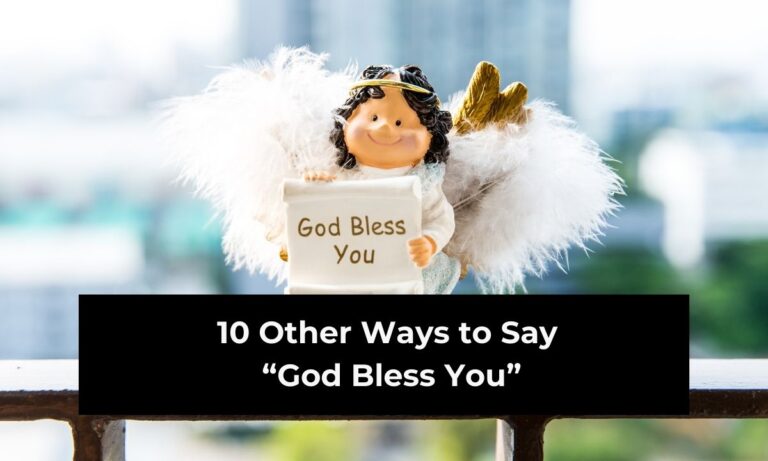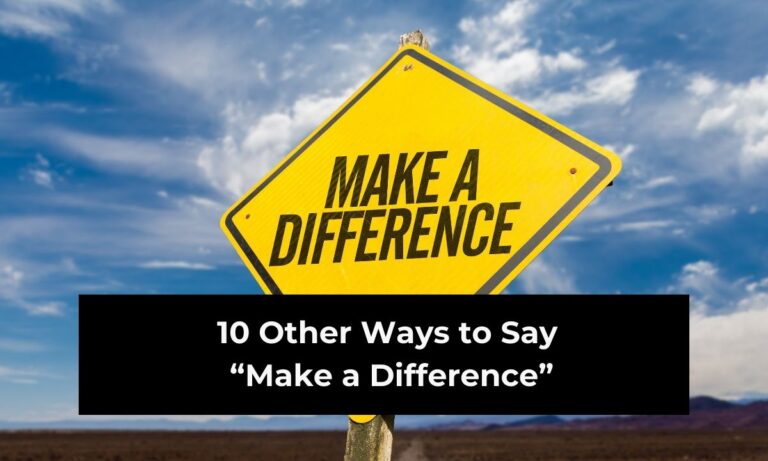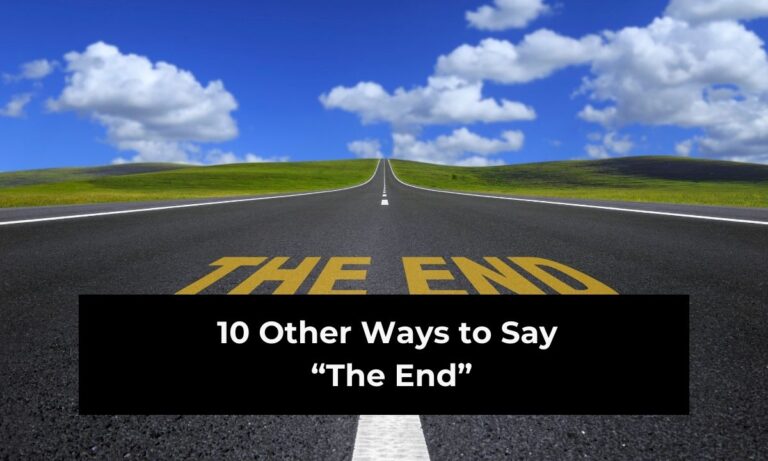When someone you care about is starting a new journey, going through a big change, or simply needs a bit of encouragement, it’s natural to want to wish them well. The phrase “wishing you the best” is a classic, but sometimes you may want to say it in a way that feels fresh, heartfelt, and more personal. Whether you’re writing a message in a card, sending a text, or speaking face-to-face, using the right words can make your sentiment feel even more meaningful.
You’ve probably noticed that repeating the same phrase over and over can lose its impact. If you’re always saying “wishing you the best,” the person may appreciate the thought but might not feel the depth of your sincerity. By learning a few creative alternatives, you’ll be able to express your well-wishes in ways that feel thoughtful, original, and perfectly suited to different occasions.
Think about it—your coworker starting a new job, your friend moving to a new city, or a loved one taking on a big challenge. In each situation, your words carry weight. The right phrase can inspire confidence, bring comfort, and show that you’re truly rooting for their success. And when you choose words that feel genuine, your message stands out and is remembered.

In this guide, we’ll explore 10 other ways to say “wishing you the best”. Each phrase comes with examples and insights to help you understand when and how to use it. By the end, you’ll have a set of heartfelt expressions you can use anytime you want to lift someone’s spirits or celebrate their next step in life.
Must Read:
- Other Ways to Say “God Bless You”
- Other Ways to Say “You as Well”
- Other Ways to Say “Thinking of You”
1. “All the Best to You”
This phrase is simple yet powerful. When you say “all the best to you,” you’re extending your good wishes in a warm, inclusive way. It doesn’t just mean success in one area—it covers happiness, health, opportunities, and personal growth.
You can use this phrase in both formal and casual settings. For example, when writing a farewell message to a coworker, “All the best to you in your new role” feels professional yet kind. On the other hand, if your friend is starting a new chapter, “All the best to you on this exciting journey” feels encouraging and personal.
One of the strengths of this phrase is its flexibility. It works in emails, speeches, and personal notes. It’s not overly emotional but still conveys genuine care. If you’re unsure what to say but want your message to be heartfelt, “All the best to you” is always safe and appreciated.
2. “Best of Luck”
“Best of luck” is one of the most common alternatives to “wishing you the best,” but it carries its own charm. It’s often used when someone is about to face a challenge or enter into something new, such as an exam, competition, or big project.
When you say this, you’re acknowledging that the outcome isn’t guaranteed, but you’re rooting for their success. For example, “Best of luck on your interview tomorrow” shows that you recognize the importance of the moment while sending positive energy their way.
This phrase works beautifully in casual conversations. It’s not overly formal, which makes it great for friends, classmates, or colleagues. If you want to make it a little warmer, you can add a personal touch, such as: “Best of luck—I know you’ve got this.” That extra note shows confidence in their abilities, making your words even more uplifting.
3. “Wishing You Success”
If the situation specifically calls for encouragement in professional or personal achievements, “wishing you success” is a strong choice. This phrase is focused and clear, letting the person know that you’re cheering for their accomplishments.
It’s often used in formal or professional contexts, such as in business correspondence or congratulatory notes. For instance, if a colleague is launching a new business, writing “Wishing you success in your new venture” shows professionalism while still being supportive.
The beauty of this phrase lies in its directness. Unlike more general well-wishes, it emphasizes achievement and progress. It’s a way of saying, “I believe in your potential, and I want to see you thrive.” In more personal contexts, it can also feel heartfelt, like telling a friend: “Wishing you success in everything you’ve worked so hard for.”
4. “May You Achieve Great Things”
This phrase feels motivational and inspiring. It goes beyond a simple wish—it’s a statement of belief in someone’s capabilities. By saying “may you achieve great things,” you’re encouraging them to dream big and reminding them that you see their potential.
This is perfect for moments of transition, like graduations, promotions, or personal milestones. For example: “As you step into this new chapter, may you achieve great things and continue to grow.” It adds a sense of aspiration and hope.
What makes this phrase stand out is that it’s both personal and empowering. It suggests that the journey is just beginning and that there’s so much more ahead. For people who may feel nervous about the unknown, hearing these words can instill confidence and motivation.
5. “Sending You Positive Vibes”
If you’re looking for something modern and lighthearted, “sending you positive vibes” is an excellent option. It’s less formal than other expressions, but it carries warmth and encouragement.
This phrase is especially popular in casual conversations, social media posts, and messages to friends. For example: “Good luck on your big day tomorrow—sending you positive vibes!” It feels friendly, approachable, and full of good energy.
One reason this phrase resonates so well is that it conveys more than just words—it suggests that you’re actively rooting for someone with good intentions and energy. It’s ideal when you want to lift someone’s mood without sounding too serious or formal.
6. “Here’s to Your Future”
This phrase is often used in celebratory contexts, like toasts, cards, or farewell messages. It captures the excitement of looking forward to what lies ahead. By saying “Here’s to your future,” you’re raising a metaphorical glass to the opportunities and joys that await someone.
For instance, at a graduation party, you might say: “Congratulations! Here’s to your future and all the adventures ahead.” It has a festive and hopeful tone, making it perfect for milestones.
What makes this phrase so special is that it doesn’t just focus on the present moment—it emphasizes optimism for what’s to come. It’s about celebrating both achievements and potential, making the person feel seen and valued.
7. “May Your Dreams Come True”
This phrase carries a touch of magic and inspiration. When you say “may your dreams come true,” you’re going beyond practical success—you’re wishing for happiness, fulfillment, and the realization of someone’s deepest desires.
It works wonderfully in personal notes, especially for close friends and loved ones. For example: “I know how much this means to you—may your dreams come true in every way.” It feels intimate, heartfelt, and full of hope.
This expression can also be used in more formal contexts like wedding cards, where people often write: “Wishing you a lifetime of love and happiness. May your dreams come true together.” Its charm lies in its ability to feel both personal and universal, making it a timeless option.
8. “Good Luck with Everything”
This is another versatile and widely used alternative. “Good luck with everything” is casual, friendly, and supportive. It covers all bases when you want to send encouragement without being overly specific.
For instance, if your friend is moving to a new city, you might say: “Good luck with everything—you’re going to do amazing.” It doesn’t focus only on one part of their life but instead shows that you’re wishing them well in all aspects.
The broadness of this phrase makes it perfect for situations where you don’t know all the details. It ensures your message is still kind, supportive, and uplifting without feeling vague.
9. “Here’s Hoping for the Best for You”
This phrase is slightly more conversational and carries a gentle tone of optimism. By saying “here’s hoping for the best for you,” you’re acknowledging uncertainty but also expressing strong faith in a positive outcome.
It’s great for moments when someone is stepping into the unknown, like waiting for results or beginning a new challenge. For example: “Here’s hoping for the best for you in your next chapter.” It feels thoughtful and sincere without being overly formal.
The appeal of this phrase lies in its balance—it’s hopeful but not forceful, supportive but realistic. It shows empathy and encouragement in a way that feels genuine and caring.
10. “Warmest Wishes Always”
This phrase is full of warmth, kindness, and care. “Warmest wishes always” is more than just good luck—it’s about sending ongoing support and love.
It works especially well in cards, letters, or meaningful messages. For example: “Warmest wishes always as you embark on this new journey.” It feels timeless, elegant, and deeply heartfelt.
This expression is ideal when you want your words to carry emotional weight. It’s not only about success but also about well-being and happiness. It communicates that your support isn’t temporary—it’s lasting.
Conclusion
Finding the right words to express your well-wishes can make all the difference. While “wishing you the best” is a reliable phrase, sometimes using a fresh alternative makes your message more meaningful and memorable. Whether you choose something professional like “wishing you success,” casual like “sending you positive vibes,” or heartfelt like “may your dreams come true,” each expression allows you to connect in a unique way.
When you personalize your message to fit the person and the occasion, you show that you’ve put real thought into your words. That kind of sincerity never goes unnoticed. So the next time you want to encourage, celebrate, or comfort someone, use one of these alternatives to say what’s truly in your heart.
FAQs
1. Can I use these phrases in professional settings?
Yes. Phrases like “wishing you success,” “all the best to you,” and “here’s to your future” work well in formal and professional contexts.
2. What’s the most casual alternative to “wishing you the best”?
“Sending you positive vibes” or “good luck with everything” are perfect for friendly, informal conversations.
3. Which phrase is best for special milestones?
“May your dreams come true” and “here’s to your future” are great for weddings, graduations, and major life changes.
4. How can I make these phrases more personal?
Add a specific detail. For example: “Best of luck on your big exam tomorrow—you’ve worked so hard for this.”
5. Why should I use different ways of saying it?
Using varied expressions keeps your message fresh and heartfelt, showing that you truly care and aren’t just using a generic phrase.





